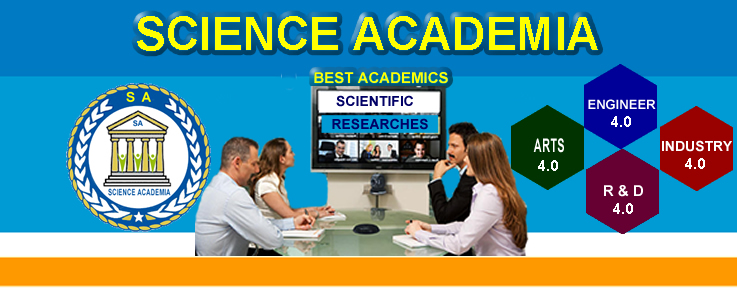Industry 4.0 refers to the fourth industrial revolution that is currently underway. Food, agriculture, building and environment were affected by Industry 4.0. As a result of this interaction, systems such as food 4.0, agriculture 4.0, construction 4.0 (Smart House, Smart Building, Smart Factory etc.) and environment 4.0 have developed. Engineering 4.0 integrates engineering research and emerging manufacturing and manufacturing processes into 4.0 technologies through digital transformation.
With the Industry 4.0 process, curriculum course requirements for 4.0 technologies emerged in the departments that train engineers. In addition, the need for a technological environment where students can apply 4.0 technologies has emerged. In these technological environments, there are application needs related to the way digital technologies such as Internet of Things, Robotics, Cloud Computing, Additive Manufacturing, Artificial Intelligence and others do business and work.
With the Industry 4.0 process, the need for Education 4.0 has emerged.
Existing faculties with Industry 4.0 skills are not sufficient to meet curriculum requirements. The current curriculum is already stuffy and meets accreditation requirements. Adding a new course requires deleting some of the existing content. Traditional credit-hour, semester-based course delivery makes it difficult to quickly incorporate Industry 4.0-specific content into the curriculum.
In this environment of exponential technological change, we as educators and 4.0 technology managers need to ask ourselves tough questions such as:
Is the current engineering education system suitable for today?
Are we decades behind our times?
What should be the new model of engineering education?
What should be our Engineering 4.0 movement that will go hand in hand with Industry 4.0, Food 4.0, Agriculture 4.0 and Environment 4.0?
Will graduate institutions be sufficient to train Engineer 4.0?
Are private institutions and organizations needed to train Engineer 4.0?
How should Education 4.0 be?
1. There isn’t enough current faculties with Industry 4.0 skills to fill the curriculum requirements.
2. Existing curricula is already congested, filling accreditation requirements. adding new material requires deletion of some existing content
3. Traditional credit-hour, semester-based course delivery may not facilitate rapid inclusion of Industry 4.0-specific content.
4. Rapidly changing technology has become the norm, but the academy is not agile.
5. The cost of equipment and facilities is prohibitive, especially rapidly changing tech
6. The university system favors and rewards research, and is designed to train students for graduate schools and research, which overshadows the work to develop quantities of Industry 4.0 skilled workers who will work in industry after an undergraduate degree.
7. University research is often given priority over workforce preparation. 8. Community colleges have to balance college-prep track against skilled-trades tracks, while the need for Industry 4.0 workers covers both.
Engineering 4.0 scopes
- Customer Oriented Engineering,
- Interdisciplinary Engineering,
- Production 4.0,
- Quality 4.0,
- Half Life Cycles,
- Halved product lifecycles,
- Data Access
- Smart Tools
Quality 4.0 :
1. Digital tools applied to quality (AI, ML, Predictive Analytics).
2. Excellence for sustainable performance and effective gains.
3. Centralization of Quality Data and Content,
4. E2E QMS
5. Quality Cost Transparency (COPQ)
5. Estimated Quality
6. Supplier Quality and Product Development
7. Biggest challenges or barriers: Lack of digital skills and capabilities, Lack of clear digital strategy, Lack of Quality Culture, Fragmented and/or outdated infrastructure.
8. Biggest success factors: People with Social Skills i.e. creating analytics and communicating business value, influencing teams and experienced change managers.

